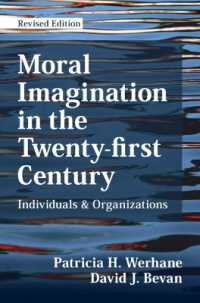基本説明
New in paperback. Hardcover was published in 1988.
Full Description
This study of reduplication in Afrikaans provides a unified and principled analysis of an unusual and highly complex word formation process, shedding new light on the scope and content of various fundamental lexicalist principles of word formation. Surprisingly, Rudolf Botha concludes that the principles involved in Afrikaans reduplication are not unique to Afrikaans, as has often been thought, and are used by many other languages. Moreover, the interpretation of Afrikaans reduplications depends on principles of conceptual structure that are restricted neither to Afrikaans nor to the interpretation of reduplications, thus supporting recent work on cognition and meaning undertaken by Ray Jackendoff and other scholars. In analysing the data, Professor Botha has also provided a concrete illustration of how the Galilean style of linguistic inquiry can fruitfully be applied in the study of word formation and meaning. The study thus represents an important theoretical and methodological advance which will be of as much interest for its method of inquiry and argumentation as for the fresh insights it provides for scholars and researchers in the fields of morphology, word formation and semantics.
Contents
Acknowledgements; 1. Introduction; 2. Formation; 3. Semantic interpretation; 4. Link-up; 5. Metascientific retrospection; Notes; References; Index.







